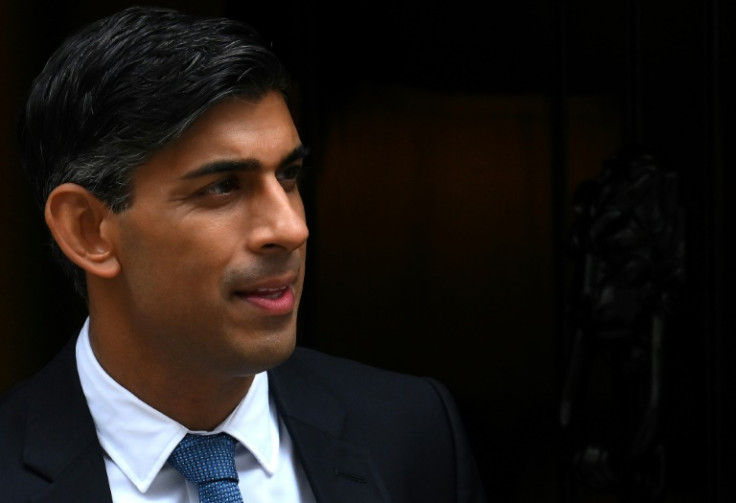UK Supports Israel's Right to Self-Defense Amid The Nation's Ongoing War Against Hamas
Sunak's recent visit to Israel on October 19, 2023, marked a significant diplomatic move as he expressed his condolences and reaffirmed the UK's unwavering belief in Israel's right to self-defence in accordance with international humanitarian law.

In a significant diplomatic move, the Prime Minister of the United Kingdom, Rishi Sunak, met with Israeli Prime Minister Benjamin Netanyahu on October 19, 2023, to express condolences and reaffirm the UK's belief in Israel's right to self-defence. The meeting comes amid the ongoing Israel-Hamas conflict, which has raised concerns globally.
During their meeting, both leaders discussed a range of issues, including the humanitarian situation in Gaza and the release of British nationals held by Hamas.
Prime Minister Rishi Sunak began his remarks by expressing deep condolences on behalf of the British people for the tragic loss of life in Israel. He acknowledged the hardship and suffering that the Israeli population has endured during the conflict, emphasising that no nation should have to endure such circumstances.
The UK Prime Minister reaffirmed the British government's unwavering belief in Israel's right to self-defence. He emphasised that Israel's actions were in line with international humanitarian law. This strong stance reflects the UK's support for Israel's efforts to end the threat posed by Hamas.
Furthermore, he thanked his Israeli counterpart for the support provided to British nationals who have been taken hostage by Hamas. Both leaders expressed their commitment to working closely together to secure the freedom of these British hostages, underlining the importance of this cooperative effort.
Prime Minister Sunak welcomed Prime Minister Netanyahu's announcement regarding the opening of aid access to Gaza. He stressed the importance of establishing sustained access to deliver essential supplies such as food, water, medicine and fuel to Gaza. This move not only aids the Palestinian population but also enables British nationals trapped in Gaza to leave.
Both leaders recognised the need to prevent any further escalation of the conflict that could lead to a wider regional crisis. They highlighted the importance of restoring peace and stability to the region, underscoring the significance of diplomatic efforts to achieve this goal.
Acknowledging Palestinian suffering
In a balanced approach, Prime Minister Sunak acknowledged that the Palestinian people have also suffered as a result of the conflict, particularly due to the actions of Hamas. He commended Prime Minister Netanyahu's decision to open routes into Gaza for humanitarian aid, indicating a commitment to helping all affected parties.
The visit of Prime Minister Sunak to Israel follows similar visits by other world leaders, including German Chancellor Olaf Scholz and US President Joe Biden. French President Emmanuel Macron has also expressed his intention to visit the region in the near future. These international visits collectively aim to prevent the Israel-Hamas conflict from further escalating and to work towards a peaceful resolution.
Prime Minister Sunak's visit to Israel is part of a broader international effort to address the Israel-Hamas conflict and its potential regional ramifications. The UK's clear support for Israel's right to self-defence, combined with efforts to alleviate the humanitarian crisis in Gaza and secure the release of hostages, demonstrates a commitment to diplomatic solutions in the face of a complex and longstanding conflict.
Notably, Egyptian President Abdel Fattah El-Sisi has pledged to send humanitarian aid to the Gaza Strip. However, this aid is to be allowed into southern Gaza from Egypt on the condition that it does not reach the Hamas militant group. This reflects the broader challenge of delivering aid to the region while avoiding its diversion to groups engaged in the conflict.
In an attempt to normalise ties between Israel and Saudi Arabia, the U.S. Ambassador to Israel, Jack Lew, has indicated a commitment to advancing pre-war negotiations. The engagement of the United States and other international actors in diplomatic efforts signals a collective desire to find a peaceful resolution to the ongoing conflict.
The United States, under President Joe Biden's administration, is planning to submit a supplemental request to Congress, which includes approximately $100 billion in funding. This funding will cover various aspects, including defence assistance for Israel, aid to Ukraine, border security funding and support for nations in the Indo-Pacific, including Taiwan. The provision of defence assistance to Israel underscores the strong U.S. commitment to Israel's security.
The UK's support for Israel's right to self-defence, as expressed by Prime Minister Rishi Sunak during his visit to Israel, is a clear and significant statement of the country's position on the ongoing Israel-Hamas conflict. This support is accompanied by efforts to address the humanitarian crisis in Gaza and secure the release of British nationals held by Hamas.
International leaders, including those from the United States, Germany, and France have also engaged in diplomatic initiatives aimed at finding a peaceful resolution to the conflict and preventing further escalation. These diplomatic efforts represent a ray of hope in a region plagued by long-standing tensions and conflicts, as the world collectively works towards peace and stability.
© Copyright IBTimes 2025. All rights reserved.






















